Psychotherapy Blog
-
How to Overcome Social Anxiety in Social Situations

An Integrative Therapist’s Perspective
Click Here
Understanding Social Anxiety
If you’ve ever walked into a room and felt your heart race, your palms sweat, or your mind spiral with thoughts like “Everyone’s staring at me”—you’re not alone. That’s social anxiety. It’s more than shyness; it’s that heavy fear of being judged or embarrassed in front of others.
From an integrative therapy lens, I see social anxiety as something that touches your mind, body, and relationships all at once. It’s often shaped by past experiences—maybe being criticized, bullied, or feeling out of place. The good news? With gentle steps, you can learn to ease that fear and feel more at home in social situations.
Simple, Practical Things You Can Try
• Catch the thought spiral
When you notice yourself thinking, “Everyone will see I’m nervous,” pause. Ask yourself: “Is that really true, or am I assuming?” Often, our brains exaggerate. Studies show that reframing these thoughts helps calm anxiety.
• Plan a little, but don’t over-plan
Heading to a party or meeting? Have one or two easy conversation starters ready—like asking about someone’s weekend. But don’t script the whole thing. Kee... -
What You Can Expect in Your First Session for Anxiety

Beginning therapy for anxiety can feel like a brave but uncertain step. You may arrive with nerves, curiosity, or even a little hesitation about what to say. That’s all part of the process.
Click Here
As an integrative therapist, I want you to know that your first session isn’t about having everything figured out—it’s about creating a safe, supportive space where we can begin to explore your experience together.
What Happens in Your First Therapy Session
Your first session is about connection, not perfection. My role is to listen, to understand, and to help you feel grounded. Here’s what usually happens:
• Introductions and building trust: We’ll start by talking about how therapy works and what you can expect.
• Exploring your story: I’ll invite you to share what brings you here—whether it’s racing thoughts, physical tension, or a sense of being overwhelmed.
• Setting intentions together: We’ll think about what you’d like to move toward. That might be finding calm in daily life, easing anxious spirals, or simply having a space to breathe and reflect.
Actionable Tips to Prepare
It’s natural to feel anxious before therapy. A little preparation can help you... -
Therapy for Black People: Shared Struggles, Shared Healing

Seeking therapy is a courageous step, and for many Black People, it comes with unique challenges. Beyond the universal experiences of anxiety, stress, depression, trauma, and loneliness, therapy often means navigating the weight of racism, cultural stigma, and questions of identity. These experiences are deeply human, and therapy offers a safe space to explore them without judgement.
Click Here
Anxiety Therapy and Racial Stress
Anxiety is the most common reason people search for therapy. For people of colour, anxiety often carries an extra layer connected to discrimination and microaggressions. Therapy for anxiety helps calm racing thoughts, reduce worry, and restore a sense of peace.
Stress Management Therapy
Stress is the second most searched issue for therapy. For people of colour, stress can be intensified by systemic barriers and cultural expectations. Therapy provides strategies to manage stress, balance responsibilities, and build resilience.
Depression Counselling and Cultural Stigma
Depression is another leading reason people seek therapy. In many communities of colour, stigma around mental health can make it harder to ask for help. Therapy reframes depression as a human experience, offering space for compassion, understanding... -
Anxiety: A Universal Human Experience

Anxiety is something we all know in different ways. It might be the flutter in your stomach before speaking up, the restless night before an exam, or the quiet hum of worry that follows you through the day. Therapy for anxiety isn’t about “fixing” you—it’s about finding support for a shared human experience.
Click Here
Why Anxiety Connects Us All
• Anxiety therapy is the most common search worldwide, because worry touches every life.
• It often overlaps with stress management and depression counselling, showing how interconnected our emotional worlds are.
• For many, anxiety is tied to trauma therapy or the ache of loneliness support, reminding us that healing is never one‑size‑fits‑all.
Everyday Overlaps We All Recognize
• Stress therapy: Think of the deadlines, bills, or family responsibilities that pile up. Stress is part of life, but therapy helps us carry it without breaking.
• Depression therapy: Sometimes anxiety feels like a storm, and depression is the heavy rain that follows. Therapy offers shelter, helping you rediscover light and energy.
• Trauma therapy: Past experiences can echo in the present. Therapy provides a safe space to gently untangle those echoes.
• Loneliness support: Even in a... -
Black Mental Health in the UK — Overrepresentation, Causes, and How Therapy Helps
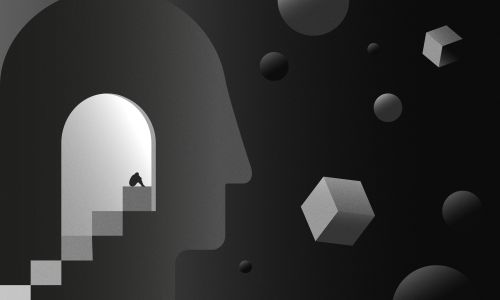
Overrepresentation in UK Mental Health Services
Click Here
Black mental health in the UK is marked by stark disparities. Black men and women are disproportionately represented in mental health services, particularly through compulsory detention under the Mental Health Act UK.
• In 2023, Black people were 3.5 times more likely than White people to be detained under the Mental Health Act (228 per 100,000 compared with 64 per 100,000).
• The Black “Other” group had the highest detention rate of all ethnic groups, at 715 per 100,000.
• Black or Black British people are up to 11 times more likely to be subject to Community Treatment Orders (CTOs).
• Black men show a higher prevalence of psychotic disorders (3.2%) compared to White men (0.3%).
These figures highlight a racial disparity in therapy and services: Black people are more likely to enter care through coercive routes (police involvement, compulsory detention) rather than voluntary pathways like GP referrals or community support.
Why Are Black People Overrepresented?
Systemic Racism in Healthcare
Bias in diagnosis, treatment, and referral pathways means Black patients are often seen as “high risk” and are more likely to be detained. Th... -
PTSD in Children
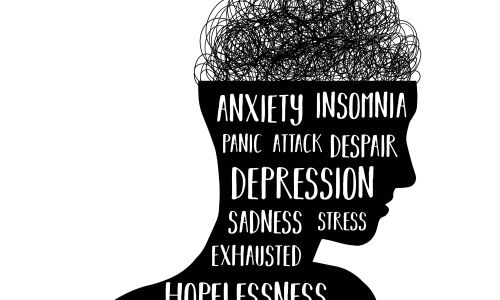
Post-traumatic stress disorder, or PTSD, is a mental health disorder that may develop after exposure to exceptionally threatening, frightening events or traumas.
Click Here
What is a trauma?
Traumas are events that involve actual or threatened death, serious injury or sexual violence. For example, being assaulted, witnessing domestic violence, or being involved in a natural disaster such as a fire. Young people can experience a trauma because it happens to them, they see it happen to others, or they hear about it.
How common is it to experience a trauma before adulthood?
Exposure to traumatic events is very common among young people. By the end of adolescence, around 75% of young people will have been exposed to a traumatic event.
How do children and young people react to traumatic events?
Immediately after a traumatic event all children are likely to be distressed, tearful, frightened and in shock. Most young people will recover well with family support.
The range of emotional reactions that young people can develop is very broad, but commonly includes:
Upsetting memories of the traumatic event – These are usually vivid images. Sometimes young people hear, feel or smell things that happened during th... -
Relationships, Boundaries, and Being Real: A Gen Z Survival Guide

Let’s be honest—relationships can be amazing, messy, confusing, and exhausting. Whether it’s family, dating, or friendships, figuring out how to be close to people without losing yourself is one of the biggest challenges Gen Z faces.
Click Here
If you’ve ever felt drained, stuck, or like you’re always the one giving more—this blog’s for you.
What Are Boundaries (And Why Do They Matter)?
Boundaries are the invisible lines that protect your energy, emotions, and identity. They help you say:
• “This is okay for me.”
• “This isn’t.”
• “I need space.”
• “I care, but I can’t fix everything.”
Without boundaries, relationships can feel heavy, confusing, or unsafe. With them, you get to show up as you—not a version of yourself that’s always performing or pleasing.
Family Dynamics: When Love Feels Complicated
Family can be a source of love, support, and identity—but also pressure, guilt, and emotional overload. You might feel:
• Responsible for keeping the peace
• Like you’re never “good enough”
• Stuck between loyalty and your own needs
• Afr... -
Digital Overload and Mental Health: Why Your Brain Feels Fried (And What You Can Do About It)

You wake up to notifications. You scroll through news, memes, group chats, and TikTok’s before breakfast. You answer messages while doing homework. You fall asleep with your phone in your hand.
Click Here
Sound familiar?
If your brain feels like it’s constantly buzzing, glitching, or just done, you’re not imagining it. That’s digital overload—and it’s messing with your mental health.
What Is Digital Overload?
Digital overload is what happens when your brain gets overwhelmed by too much screen time, too many notifications, and too much information. It’s like trying to run 50 apps on a phone with low battery—eventually, something crashes.
For Gen Z, this isn’t rare. It’s daily life.
You might feel:
• Tired but unable to sleep
• Anxious or restless for no clear reason
• Distracted, forgetful, or zoned out
• Numb, irritable, or emotionally flat
• Like you have to keep scrolling, even when it’s not fun anymore
Why Gen Z Is Feeling It More
You grew up online. Social media isn’t just entertainment—it’s identity, connection, expression, and sometimes survival. But it also comes with pressure:
• T... -
Feeling Lonely? You’re Not the Only One
Let’s talk about something real: loneliness. Not just being alone for a few hours—but the kind that sneaks in even when you’re surrounded by people. The kind that makes you feel invisible, disconnected, or like no one really gets you.
Click Here
If you’ve felt this way, you’re not broken. You’re human. And you’re not alone.
What Loneliness Really Feels Like
Loneliness isn’t just about being physically alone. It’s about emotional disconnection. It’s the ache of wanting to be seen, heard, and understood—and not knowing where to turn.
It can feel like:
• Scrolling for hours but feeling empty
• Being in a group and still feeling left out
• Missing someone you can talk to without pretending
• Feeling like you’re too much—or not enough
• Wondering if anyone would notice if you disappeared
These feelings are common, especially among teens and young adults. You’re not weird. You’re not dramatic. You’re just craving connection—and that’s a beautiful, human thing.
Why It Happens (And Why It’s Not Your Fault)
Loneliness can show up for all kinds of reasons:
• Moving to a new school, city, or country
• Losing a friendship or relationship... -
Body Image & Self-Esteem: You Deserve to Feel Good About You

Let’s be honest—growing up today means facing a lot of pressure. Social media, school, family, friends, fitness culture, filters, and comparison can make it hard to feel good in your own skin.
Click Here
Whether you’re a young man or woman, body image and self-esteem are real struggles. But they’re also things you can work on, gently, with support.
What Is Body Image?
Body image is how you see yourself—your shape, size, face, skin, hair, everything. It’s not just about mirrors or photos. It’s about how you feel in your body.
• Do you feel confident showing up as you?
• Do you compare yourself to others and feel “less than”?
• Do you avoid certain clothes, places, or people because of how you look?
If any of that sounds familiar, you’re not alone. Body image support for teens and young adults is one of the most searched mental health topics today.
What Is Self-Esteem?
Self-esteem is how you value yourself. It’s your inner voice—the one that says “I’m enough” or “I’m not good enough.” It affects how you speak up, take risks, and care for yourself.
Low self-esteem can show up as:
• Constant self-criticism
• Fear of being judged
• Feeling lik... -
Therapy for Anxiety and Burnout: A Survival Guide for Young Women
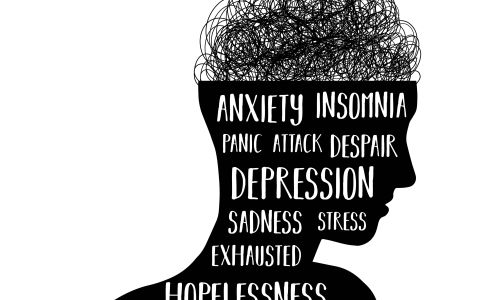
Let’s be real: being a young woman in 2025 is no chill ride. Between school, work, relationships, social media, and the pressure to “have it all together,” it’s easy to feel like you’re running on empty. If you’ve been feeling anxious, exhausted, or just not like yourself, you’re not broken—you’re burned out. And therapy can help.
Click Here
What Is Burnout (And Why Does It Feel Like You’re Drowning)?
Burnout isn’t just being tired. It’s emotional exhaustion, brain fog, and the sense that even small tasks feel huge. It can show up as:
• Feeling constantly overwhelmed or irritable
• Trouble sleeping or waking up tired
• Losing interest in things you used to enjoy
• Feeling disconnected from yourself or others
• Crying easily or feeling numb
Burnout in young women is rising fast, especially among students, carers, creatives, and anyone juggling multiple roles. Anxiety often tags along, making everything feel urgent, scary, or impossible.
Why Therapy Helps (Even If You Think You Should “Push Through”)
Therapy isn’t just for crisis—it’s for clarity. A therapist can help you:
• Understand your anxiety triggers
• Learn how to set boundar... -
Youth Mental Health: What You’re Feeling Is Real

Whether you’re 13 or 23, life can feel like a pressure cooker. School stress, friendships, identity questions, family stuff, and social media—it’s a lot. If you’ve ever felt anxious, low, overwhelmed, or just “not yourself,” you’re not alone. Youth mental health matters, and talking about it helps.
Click Here
What Is Mental Health?
Mental health is how you feel, think, cope, and connect. It’s your emotional weather—sometimes sunny, sometimes stormy, always changing.
• Feeling anxious before exams? That’s mental health.
• Struggling with body image or identity? That’s mental health.
• Feeling numb, angry, or like you’re carrying too much? Still mental health.
Why It Matters (And Why It’s Not Just “Teen Drama”)
Young people today face pressures older generations didn’t. Social media, climate anxiety, identity exploration, and constant comparison can make it hard to breathe. Mental health challenges aren’t weakness—they’re signals.
Your brain and body are asking for care, not judgment.
Carers, parents, and professionals: if a young person opens up, listen first. Validate. Don’t rush to fix. Your presence matters more than perfect advice.
Signs You Might Need Support... -
Are There Specific Triggers That Affect Your Mental Wellbeing, and How Do You Manage Them?
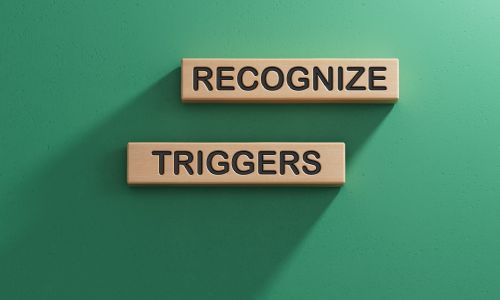
Emotional triggers are moments when something external activates an internal emotional response. These triggers can significantly affect mental wellbeing, especially for individuals navigating anxiety, trauma, or emotional sensitivity.
Click Here
Common emotional triggers include changes in tone, crowded environments, missed communications, or unexpected disruptions. These reactions are not signs of weakness—they are signals that something within us needs attention.
Understanding and managing emotional triggers is a key part of emotional healing and mental health care. Below are five evidence-informed strategies that support emotional resilience and self-awareness when triggers arise:
1. Name the Feeling
Begin by identifying what you’re feeling. Ask yourself, “What’s happening inside me right now?” Naming the emotion—whether it’s anxiety, sadness, anger, or numbness—can reduce its intensity and help you respond with clarity. This practice supports emotional regulation and mental clarity, both essential for maintaining mental wellbeing.
2. Trace the Roots
Explore where the reaction might come from. Is it linked to a past experience, a relationship dynamic, or a belief you hold about yourself? Understanding the origin o... -
Who Was I Before I Lost Myself

A reflection on emotional healing, confidence building, and rediscovering your sense of self
Click Here
There are moments in life when we stop and ask a question that feels both simple and overwhelming: Who was I before all this?
Before the stress, the compromises, and the quiet drift away from what once felt true.
This question often marks the beginning of emotional healing. It’s not just about fixing what’s broken—it’s about reconnecting with the version of ourselves that felt whole, confident, and alive. The one who dreamed freely, spoke with clarity, and moved through life with purpose.
But life pulls us in different directions. We adapt. We take on new roles, meet new demands, and try to keep up. We become experts in survival, but sometimes lose sight of our deeper confidence building journey—the one that helps us feel grounded in who we are.
You might not notice it at first. It’s subtle. A dream postponed. A value compromised. A voice inside you that used to speak with certainty now whispers with hesitation.
You become good at coping, but less sure of what you’re coping for. And then one day, you realize: you don’t quite recognize yourself.
Beginning Again
This is where personal growth begins—not with perfecti... -
What Does “Being Okay” Mean to You, and How Has That Changed Over Time?
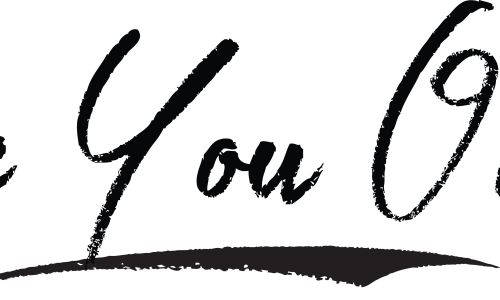
Click Here
We say “I’m okay” all the time. It’s quick, easy, and sometimes it feels safer than explaining what’s really going on. But have you ever stopped to ask yourself what being okay actually means to you?
For many teens, being okay used to mean getting through the day without breaking down. It meant showing up to school, replying to texts, pretending everything was fine—even when it wasn’t. In mental health conversations, this version of okay is often linked to survival mode: doing what you need to do to keep going, even if you’re feeling anxious, overwhelmed, or emotionally drained.
But as you grow and learn more about emotional wellbeing, your definition of okay might start to shift. It could begin to include things like:
• Feeling safe in your own thoughts and body
• Being able to name your emotions without feeling weird about it
• Taking breaks when you need them—without guilt
• Setting boundaries with people who drain your energy
• Asking for help and knowing that’s a strength, not a weakness
This shift is part of building emotional resilience. It’s not just about coping—it’s about healing, growing, and learning how to care for your mental health... -
What Did You Learn About Love from Your Caregivers?
Click Here
Our earliest lessons about love often come from the people who raised us. Whether those caregivers were parents, grandparents, guardians, or others, their words, actions, and emotional presence shaped how we understand connection, safety, and affection.
Sometimes those lessons were clear: love meant hugs, encouragement, or being listened to. Other times, love was more complicated—tied to approval, silence, or sacrifice.
For many people, especially those exploring emotional healing or therapy, reflecting on these early experiences can reveal patterns that still influence adult relationships and mental wellbeing.
Love as Safety—or Uncertainty
If your caregivers made you feel safe, seen, and supported, you may associate love with warmth and trust. But if love was conditional—based on achievement, obedience, or emotional caretaking—you might now struggle with boundaries, self-worth, or anxiety in relationships.
These early dynamics are central in therapy and emotional growth. They help us understand why we react the way we do, why certain relationships feel familiar, and what we’re still searching for.
Questions to Explore Your Own Story
Here are a few gentle prompts to help you reflect on what love looked like in...
